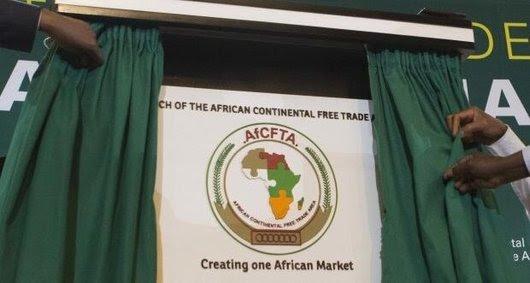- The African Continental Free Trade Area (AfCFTA) Secretariat has launched an online hub to ease trade on the African continent
- The AfCFTA Hub is a focal point for national governments, intergovernmental, private, and public organisations
- It links the parties together to make way for SMEs and startups to drive the success of the African Continental Free Trade Area
The African Continental Free Trade Area (AfCFTA) Secretariat has launched an online hub to ease trade on the African continent.
The AfCFTA Hub is a focal point for national governments, and intergovernmental, private, and public organisations. It links the parties together to make way for SMEs and startups to drive the success of the African Continental Free Trade Area.
The online hub is designed to grow into a single, trusted directory of the services needed to navigate the AfCFTA for small players, thereby making the AfCFTA the most inclusive Free Trade Area in the world.
The AfCFTA Hub also powers the “AfCFTA Number”, trusted identity and social score for all SMEs, startups and other AfCFTA players.
“It is important to ensure the centrality of SMEs, startups and female entrepreneurs as we strive to build the world’s most inclusive, most innovative and most integrated Single Market,” said Wamkele Mene, Secretary General AfCFTA.
Kenya is one of the seven countries that have been selected to start trading under the AfCFTA framework in a pilot phase to test the environmental, legal and trade policy basis for intra-African trade.
The AfCFTA Hub platform and ongoing engagements among the AfCFTA Hub Network, the Kenya Export Promotion Agency and other government of Kenya agencies form one of the bedrocks on which Kenya’s participation in the AfCFTA pilot initiative rests.
Other African countries like Zambia, Namibia, Malawi and Ghana are in advanced implementation stages of both the AfCFTA guided pilot and AfCFTA Hub platform implementation.
A subsidiary module of the platform to address the risks of market liberalisation for supply chains is the ProPer Seals system, designed to stop such vices as dumping, smuggling, counterfeiting, and illicit trading that might flourish if adequate protections are not put in place.
The AfCFTA Hub platform’s major components include the proper supply chain security system, e-logistics, a digital transactions marketplace, regulatory harmonisation and a trade facilitation mechanism to minimise free and open trade blockages, technically referred to as “non-tariff barriers”.
The AfCFTA Hub is not a self-contained system like an e-commerce or e-marketplace application. Rather it is the crux of an interconnection system that enables multiple digital solutions at the private, public, national government and intergovernmental levels to talk to and coordinate with each other to simplify and accelerate the participation of, especially, SMEs and startups in the AfCFTA process.
Africa: How easy is it to do cross border trade in Africa?
The launch comes when the Economic Commission for Africa (ECA) has effectively developed a first-of-a-kind method to measure how easy or hard it is to do business between/among African countries.
As reported by The Exchange Africa, the tool has been christened the AfCFTA Country Business Index (ACBI) and was launched during the 54th session of the Economic Commission for Africa (ECA) Conference of Ministers in Dakar, Senegal, in 2018.
The tool focuses on African integration. This means that it measures the ease of doing business for companies or entities located on the continent and those operating among several countries.
The developers say the Index looks at and compares how easy it is for African countries to trade with each other. For example, how easy it is for a Cameroonian to set up business in Kenya and vice versa. This set of checklists has three key components under the AfCFTA Country Business Index (ACBI).
First, it assesses what is referred to as ‘the perceived impact of the African Continental Free Trade Area on the private sector’s ability to trade and invest across African borders once the Area is operational.’
Explaining how the tool works, Stephen Karingi, Director of the Regional Integration and Trade Division of UNECA said, “…the measure focuses on the constraints and challenges faced by private businesses.
“It will help identify bottlenecks and address issues so that the African private sector can conduct business as seamlessly in their country of origin as anywhere else on the continent,” he said.
